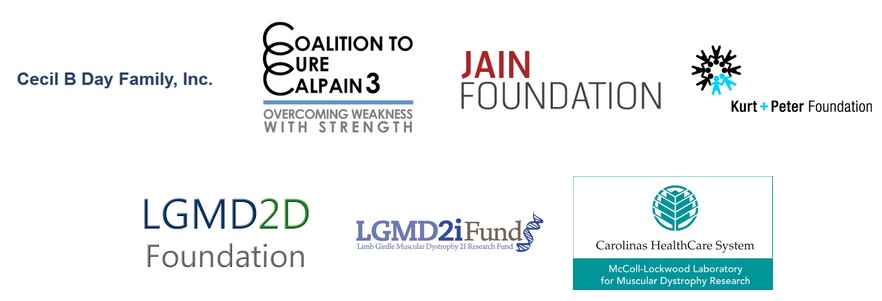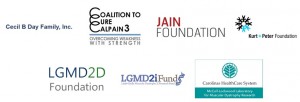Foundations Conduct Genetic Testing on Limb-Girdle Muscular Dystrophy

 Today, very little is known about Limb-Girdle Muscular Dystrophy (LGMD), a hereditary disorder that affects the muscles proximal to the body and causes progressive dystrophy. It is estimated to affect roughly one in 14,500 to one in 123,000 individuals — numbers that could very well be undercounts as LGMD has greatly limited diagnostic specificity among other muscle diseases. Another obstacle to getting an accurate picture of the prevalence of this disorder is the high cost of genetic testing. Fortunately, a number of muscular dystrophy foundations have agreed to work together to make genetic diagnostics more accessible and affordable through a website called, www.lgmd-diagnosis.org.
Today, very little is known about Limb-Girdle Muscular Dystrophy (LGMD), a hereditary disorder that affects the muscles proximal to the body and causes progressive dystrophy. It is estimated to affect roughly one in 14,500 to one in 123,000 individuals — numbers that could very well be undercounts as LGMD has greatly limited diagnostic specificity among other muscle diseases. Another obstacle to getting an accurate picture of the prevalence of this disorder is the high cost of genetic testing. Fortunately, a number of muscular dystrophy foundations have agreed to work together to make genetic diagnostics more accessible and affordable through a website called, www.lgmd-diagnosis.org.
Before this option becomes publicly available, this consortium of foundations launched a study yesterday, September 30, in anticipation of the annual observation of Limb-Girdle Muscular Dystrophy (LGMD) Awareness Day, which will begin being observed on September 30, 2015. The study will include the participation of 100 Americans who will all undergo genetic testing for the 35 genes strongly associated with the different subtypes of LGMD and other similar muscle diseases. Upon completion, the study will enroll a larger sample size from within the US, as well as from other countries.
Dr. Matthew Wicklund, a Professor of Neurology and Pediatrics at Penn State Hershey Medical Center, said that an accurate and early diagnosis of muscular dystrophy (MD) is crucial for improving prognosis as disease management and outcome varies from person to person. One of the more pressing concerns of LGMD and other types of MD are visceral affectations such as in the heart and lung muscle. Another reason for necessitating an accurate diagnosis at a genetic level is to differentiate it from inflammatory myopathies, and thereby avoid inappropriate treatments.
[adrotate group=”3″]
Dr. Madhuri Hegde, the Executive Director of the Emory Genetics Lab, said that conveniently placing MD resources in one website is a leap in raising awareness and promoting better diagnostics. Newly-diagnosed individuals can also log on to the website and join the registry for future participation in upcoming clinical trials.
If you or a loved one is experiencing muscle weakness, and if you suspect you may have LGMD, www.lgmd-diagnosis.org features an online quiz that can determine if you are eligible to participate in the newly-launched preliminary study for genetic testing.






